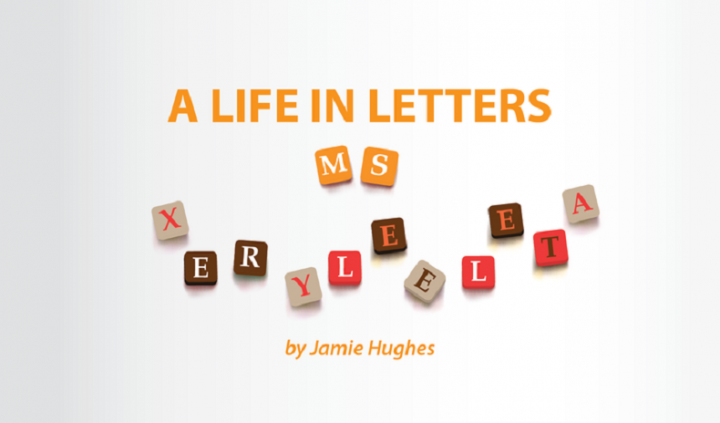What the Scan Said (and What It Didn’t)
Written by |


A couple weeks ago, I went to my neurologist’s office early for my annual MRI. It’s never a pleasant experience. Even after 14 years, it’s still as unsettling as it was the first time. It’s not the tightness of the space that gets me or the sensations and sounds. It’s the “what if.”
What if this time they find something bad? What if this time I discover that something I tried to explain away was actually my MS?
I lay there for 30 minutes or more, my body perfectly still and my mind racing. And though I know the truth, that I’m not confined by this machine or defined by what it discovers, that nagging thought keeps pounding in my brain, as consistent as the bangs and boops of the contraption I’m in.
This time around, I learned that I have a new lesion on my left cerebellum. For those of you who aren’t in the know, the cerebellum is the “little brain” at the base of your cerebrum. It is responsible for essential instinctive functions like breathing, circulation, digestion, sleeping, and swallowing.
Yikes.
Moments like this make it impossible to forget I’m not “normal,” that I’m one of 2.3 million people around the world who has multiple sclerosis. Like Linus said when he raps his knuckles on the aluminum tree, “This really brings Christmas close to a person.”
Can you relate to Jamie’s experience? How do you find comfort when you face scary situations, like brain scans? Share your experience in our MS forums.
Thankfully, there have been no major physiological problems caused by this lesion, as far as I can tell, but the revelation got me thinking about the brain and how it works. Without a doubt, it’s “fearfully and wonderfully made.” Even after hundreds of years of study, we’re not close to fully understanding it.
Recently, I read a fascinating article by Michael Egnor. A neurosurgeon and professor of neurological surgery and pediatrics at Stony Brook University, he has long sought to understand how the mind relates to the brain, and still the truth eludes him.
His studies of split-brain patients (typically epileptics who have had their corpus callosum severed) have led him to believe that, “The brain can be cut in half, but the intellect and will cannot. The intellect and will are metaphysically simple.” (If you want to read an account of one of the side effects of that surgery, I highly recommend “Permanent Present Tense: The Unforgettable Life of the Amnesic Patient, H.M.,” by Suzanne Corkin. The prose is a little dry, but the story is fascinating.)
It’s like Yoda said, “Luminous beings are we, not this crude matter.” Though a green puppet spoke these words, there’s great truth in them. There is something to us beyond our physical brains. Sometimes, I get so focused on the scan and what it reveals that I forget there is something in me that can never be codified, that can’t be seen on a cross-section. No machine, no matter how powerful, can ever see my soul. My intellect. My will. Multiple sclerosis can attack my physical brain, sure, but thankfully, it can never get at those things. I may lose the ability to walk, to see, to talk, but I will always be me. Always.
The neuroscientist seems to agree with the little Jedi master. Egnor writes that “human beings have two powers of the soul that are not material—intellect and will. These transcend matter. They are the means by which we reason, and by which we choose based on reason. We are composites of matter and spirit. We have spiritual souls.”
Yes, souls, the great mystery given to us when the breath of life is blown into our nostrils. The part of us that is in tune with the divine and that longs for communion with the Almighty. The part that science — thank goodness — can never understand.
Egnor, toward the end of his article, states, “Neuroscience, pursued without a materialist bias, points towards the reality that we are chimeras: material beings with immaterial souls.” And I think that is the best way of seeing ourselves. We human beings aren’t either/or — brain or soul — but both/and. Our physical minds matter, yes, but so, too, do the intangible parts of us, those things that don’t show up on a scan.
So, if you’re going into your next MRI or just coming out of one like I am, don’t let the results plague your days. Put the results in their proper perspective. Your physical brain is just one part — and perhaps the least important part — of who you are.
***
Note: Multiple Sclerosis News Today is strictly a news and information website about the disease. It does not provide medical advice, diagnosis, or treatment. This content is not intended to be a substitute for professional medical advice, diagnosis, or treatment. Always seek the advice of your physician or other qualified health provider with any questions you may have regarding a medical condition. Never disregard professional medical advice or delay in seeking it because of something you have read on this website. The opinions expressed in this column are not those of Multiple Sclerosis News Today or its parent company, Bionews Services, and are intended to spark discussion about issues pertaining to multiple sclerosis.



Kathleen Ahearne
Jamie... thank you... I believe what you said and true hard to remember at times... thank you for the reminder!:)
Jamie Hughes
My pleasure, Kathleen. It's all about where we choose to focus, isn't it!?
Violeta
Thank you. You made my day!
Jamie Hughes
Same to you, Violeta. :)
Carol
What beautiful thoughts.....as someone who is a "gray area" possible MS patient, waiting for another MRI - and being anxious about it, this is perfect for me to read today. Thank you.
Jamie Hughes
Carol, I'm so glad this piece found you and that it helped. I remember that gray area of knowing/not knowing. It can be a tough spot, but you'll come out of it one way or another. Be well, my friend.
Teresa Stein
Thank you for your writing.
I am going in today for my ump-teenth mri of my m.s. career. It’s true that the pictures that show damage to my brain and spine are not pictures of me. Just as a picture of your nose or your arm are not you. It will hopefully show that my lesions are reduced but regardless of the pics, I am still me.
Jamie Hughes
Thank you for the sweet comment, Teresa. It means a lot to know these words are settling on someone who needs them. Makes the lonely work of writing totally worth it. No matter what that scan says, yes, you are still you. You always will be. Be brave and take no prisoners, my friend!